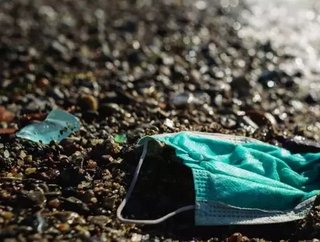The Fight Against Plastic Polution and The Impacts of COVID

As toxic as your ex, pandemic waste continues to be a problem. But the impacts of Covid-19 on the fight against plastic pollution goes farther than increased waste.
As both healthcare workers and the general public continue to stay safe by donning masks and gloves, Covid-19 has created a shift in lifestyles that increase the use of plastic while the use of recycled resin decreases, the challenge of overcoming plastic pollution becomes far greater.
“We absolutely believe that PPE waste is a significant threat to oceans and marine life,” said George Leonard, chief scientist with Ocean Conservancy. He further adds, “There’s enhanced demand and use of single-use plastics like bags and containers by consumers and businesses for groceries and food takeout.”
But there’s yet another piece to the puzzle.
Recycled Resin
In 2020 as nations the world over instituted lockdowns in an attempt to control the global pandemic, global demand for petroleum sunk and took oil prices along with it. And because, in short, recycling resin is an expensive process, this made virgin resin less expensive than recycled, removing the price motivator behind using recycled resin.
And yes, you would like to think that many would choose to simply use recycled resin for the good of this planet. But in reality, recycled resin is less consistent and harder on machines and can reduce efficiencies as it is typically more difficult to run, most companies look to the price of the material to, at the very least, make up the difference. No price motivator thereby causes a drop in usage and increasing the environmental footprint of plastic.
Meanwhile, the global pandemic has also driven a rise in plastic waste. Let’s take a look at some other key points from Science Mag:
- If the global population adheres to a standard of one disposable face mask per day after lockdowns end, the pandemic could result in a monthly global consumption and waste of 129 billion face masks and 65 billion gloves
- Hospitals in Wuhan, the centre of the COVID-19 outbreak, produced more than 240 tons of single-use plastic-based medical waste (such as disposable face masks, gloves, and gowns) per day at the peak of the pandemic, 6 times more than the daily average before the pandemic occurred
- If the increases observed in Wuhan hold true elsewhere, the United States could generate an entire year's worth of medical waste in 2 months
- This global health crisis puts extra pressure on regular waste management practices, leading to inappropriate management strategies, including mobile incineration, direct landfills, and local burnings
- At the regional and national levels, prioritization of human health over environmental health has led to the delay or reversal of policies aiming to reduce single-use plastic
Our Waste, Our Problem
George Leonard, chief scientist with Ocean Conservancy says, “We absolutely believe that PPE waste is a significant threat to oceans and marine life.”
Held in fall of 2020, the International Coastal Cleanup event found over 62,000 items of PPE around the world and collect over 1.5 million pounds of trash, which included thousands of pounds of gloves and masks.
“People may not realize that these blue masks and gloves have plastic in them. So what we’re using just for a couple of minutes can last on Earth for thousands of years. It won’t biodegrade. When it does decompose into microplastics, it will be digested by animals on land and my marine wildlife.” said Chad Nelsen, CEO of the Surfrider Foundation.
The global pandemic caused a massive shift in the way we work, and the way we live, the impacts of which, we are still in the midst of discovering. However, as citizens of the earth, we must learn to pivot and pivot fast. Of course, the health of the human race is of the utmost importance. However, so should be the health of the planet we inhabit. We must continue our efforts in curtailing the use of virgin plastic, increase plastic recycling, and coordinate efforts in adopting circular economy approaches.
May we be good humans and fight a good fight, for the good of our planet.






